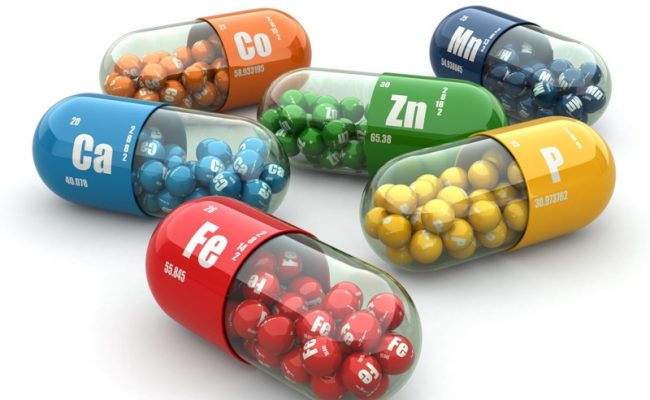
Nutrient timing is a buzzword that some people use to explain when you should eat foods for maximum nutritional benefit. Most of the time nutrient timing is related with exercise, as eating certain amounts of protein and carbohydrates around exercise could impact building muscle.
Many sports nutrition information is focused on helping athletes time their food intake to maximize building muscle and minimize muscle breakdown.
Nutrient timing is sometimes also referred to for eating certain foods at certain times of the day. For example, some nutrition or health websites recommend food combinations or not eating, for example, fruit after a certain time of the day.
Scientific studies supporting the benefit, or harm, of eating certain food groups at certain times of the day are lacking. However, timing for absorption of certain minerals, especially if you are taking a supplement, could impact how much of these nutrients you are absorbing.
What about eating after dinner? Should you eat after 8pm? This is not such a simple yes or no answer and can depend on many things. In general, the more you eat later in the day closer to sleeping may increase likelihood for fat storage.
Research with nutrient timing is continually on going. The hindrance with general guidelines of nutrient timing are there are many individual variances.
What should you eat after exercise? It depends what and when you ate before, how long you exercised, how depleted your muscles are, etc.
Nutrient timing and exercise
Eating a ratio of carbohydrates and protein, usually 4:1 respectively, is advised after strenuous, endurance exercise to rebuild muscle energy stores.
Eating a certain amount of protein, usually 20-35 grams depending on body size, is also commonly recommended for optimal muscle preservation before and/or after exercise.
Some research has also shown benefit for protein synthesis by timing protein intake consistently throughout the day as opposed to mainly eating protein at night.
These various nutrient timing guidelines can be straightforward to follow, but are they really always the best options?
A 2013 review article (2) analyzed research studies looking at nutrient timing and exercise. Researchers concluded there is still a lot we are unsure of about nutrient timing and exercise, and specific recommendations may vary.
Researchers concluded for maximal muscle building potential, a practical general recommendation of 0.4-0.5 grams per kilogram of lean body mass (not body weight) before and after exercise may be optimal for building muscle.
Someone who is serious about building muscle mass may want to dial in their nutrition so they are consuming this amount before and after heavy exercise.
Nutrient timing and exercise: Are you fasted or not?
Nutrient timing and exercise also depends on when you are exercising: is it right after a meal or 4-5 hours fasted? This can really impact how your body responds to exercise and the need for timing nutrient intake.
For example, if you do heavy lifting in a fasted state, your protein breakdown can be higher, so the importance of eating protein after exercise may be more helpful for building protein backup then if you are exercising just after eating.
How are you supposed to know when to eat what? To keep it simple, try to get healthy sources of carbohydrates, protein balanced by some healthy fat sources at meals.
If you are a serious athlete or exercising for multiple hours during the day, working with a sports nutritionist can help dial your individual nutritional needs.
Everybody and digestive system is different, so experimenting with eating and exercise can be helpful to see what your body tolerates best. Not everyone can, or needs to, drink a protein shake before and after a workout.
Timing exercise in between meals can keep things simple; eating a meal after exercise can be an easy solution for getting a mix of nutrients your body needs.
Nutrient timing: Hormone response to exercise
One suggestion for eating certain nutrients after exercise is because of the role of hormones. In general, exercise is considered a catabolic event, meaning it breaks down your muscles. In order to rebuild them, it’s important to switch to anabolic (building) state.
It is suggested that after exercise, if you eat something, insulin will come out in the blood. Insulin is an anabolic hormone which could help build muscles back up instead of staying in a catabolic state.
After exercise, muscles can be increasingly sensitive to insulin which promotes building muscles back up. Testosterone and growth hormones are other anabolic hormones can also promote muscle building (3).
There is sometimes referred to as an optimal window after exercise for building muscle back up. Sometimes this window is suggested as 45 minutes or could be up to 2 hours. There are some studies to support this “window” of opportunity.
If you eat proteins and/or carbohydrates within this window, you can optimize building muscle up and potentially minimizing muscle breakdown.
Also, how your body handles a sugary beverage, like a sports drink, after exercise will be different than if you are sitting on the couch. After exercise, the glucose is more likely to go to building your muscles.
However, some researchers have found instead of relying so heavily on the “window” after exercise, daily intake of protein and carbohydrate intake are still very important.
It’s important to keep in mind your daily food intake as well as after exercise; not get so focused on just after exercise.
Building muscle, and keeping your body healthy, requires energy, vitamins, fluids, minerals, antioxidants, fiber, etc. that are meant to be taken in throughout the whole day not just 1-2 hours.
Research studies have also shown mixed study results (4) for the benefits of varying protein and carbohydrates after exercise.
There is much variance for optimal intake of nutrients after exercise depending on what type of exercise, how long and if the exercise was in a fasted state or not.
Nutrient timing: Does it matter when you eat for weight loss?
What about nutrient timing and weight loss? Should you only eat carbs in the morning? Don’t eat anything after 8pm? There are many nutrient timing suggestions available from multiple weight loss sites. In general, if a website is telling you something drastic like to not eat fruit after lunch, don’t buy it.
A general nutrient timing tip can be to eat most of your calories earlier in the day, but there isn’t a defined magical time, like 8 pm that means anything eaten after that automatically turns into fat. However, eating most of your calories earlier in the day has been shown to be helpful for weight loss.
A 2013 study (5) had a group of overweight and obese women eat a diet providing 1,400 calories for 12 weeks. One group ate 700 calories for breakfast, 500 calories for lunch and 200 calories for dinner. The other group ate 200 calories for breakfast, 500 calories for lunch and 700 calories for dinner.
Researchers found after 12 weeks the group with the higher calorie breakfast lost significantly more weight and smaller waist size than the group with the larger dinner.
This study suggests, even with equal calorie intakes, when you eat your calories can impact weight loss.
The higher breakfast group also had lower levels of fasting glucose, insulin and triglycerides. People in the higher breakfast group also had higher satiety throughout the study meaning over all they felt more satisfied than the group that had the larger dinner.
Keep in mind timing of food intake should also be used in consideration for quality. The emphasis has strongly been on quality of food intake for many years, but more research is finding timing of food intake can also impact health.
While there is no set time to not eat after, a general guideline of eating heavier earlier in the day could be beneficial for weight loss and maintenance.
Many people tend to eat heavier later in the day closer towards bed time. If you tend to eat most of your calories at night, try shifting to eating more during the day. You could feel more satisfied, and this shift could even help with weight loss.
Nutrient timing for vitamin and mineral absorption
If you are trying to absorb more calcium, zinc, iron or other micronutrient, nutrient timing could play a role in absorption. This may be helpful for someone who has a deficiency in a nutrient to optimize the amount they can absorb.
Certain minerals like calcium, iron and zinc compete with each other for absorption. For example, if you are trying to get more calcium in your diet and are also taking an iron supplement, to optimize your absorption of both nutrients, eat calcium foods/supplements separate from iron supplements.
If you are taking a multi-vitamin, how much are you absorbing of each nutrient? It can be hard to say. Other foods can also bind up nutrients and make them less absorbable.
For example, tanins and phytonutrients in teas, grains or some vegetables can make nutrients less absorbable. If you are taking an iron supplement, you may want to take it with orange juice instead of tea. Why? Vitamin C, found in orange juice and other fruits, can increase iron absorption, but tea could limit absorption.
If you have a nutrient deficiency or want to know more how your individual health is affected by nutrient absorption, speak with a health professional. Before you start taking a supplement, speak with your health care team, especially if you are taking medication. Medications may also interfere with nutrient absorption.
The body can upregulate or down regulate absorption of nutrients from foods, depending on the body’s need. However, absorption from supplements can be different.
Therefore, the focus should be to eat a varied diet with different foods to optimize absorption instead of focusing on not eating foods certain times of the day.
Nutrient timing: Keep it simple
Nutrient timing doesn’t have to be over complicated for most people. In general, be wary of claims suggesting to not eat certain food groups at certain times of the day. There are also suggestions for not eating certain food combinations, but again there isn’t scientific evidence to support this.
If you have a medical issue, specialized diets are of course warranted. You should always follow the advice of your health care team.
Nutrient timing and exercise can be simplified to some common suggestions, but unfortunately there is still some ambiguity for exact guidelines according to a 2013 review article.
Getting adequate carbohydrates and proteins after exercise could help maximize muscle gains, but overall intake of nutrients throughout the day shouldn’t be overlooked.
Interestingly, some studies have shown not only how much, but when you eat can impact weight regulation. Eating most of your calories earlier in the day has been shown to be helpful for weight loss.
However, there is no set time, like 8 pm, that everyone should eat before. Bear in mind your total daily food intake is still important.
Timing for nutrient absorption could also be important for people trying to maximize their absorption of certain minerals. The body does a pretty good job at upregulating absorption of nutrients from foods depending on the need.
However, if someone is taking a supplement and/or deficient in a nutrient, timing your intake could add further benefit.
For example, taking an iron supplement with a vitamin C source can increase absorption, but taking it with a glass of milk could lower optimal absorption.
If you have specific questions for your health and absorption of a nutrient, speak with your healthcare team.











